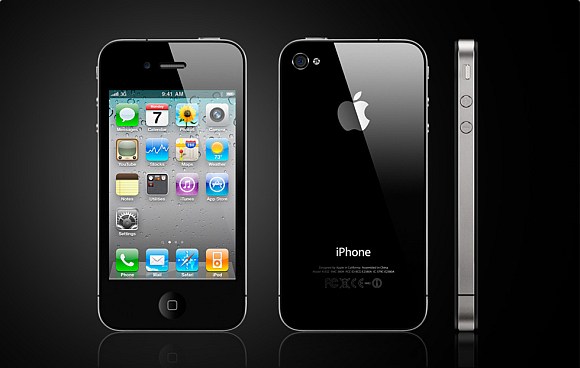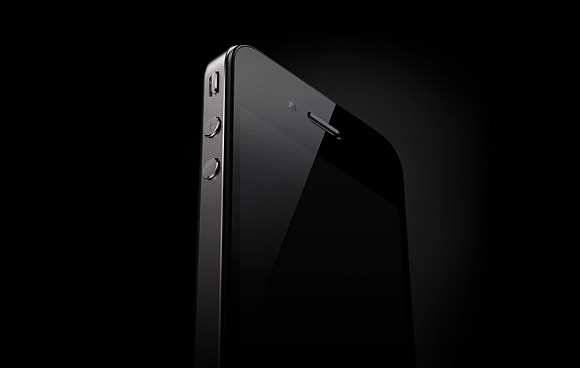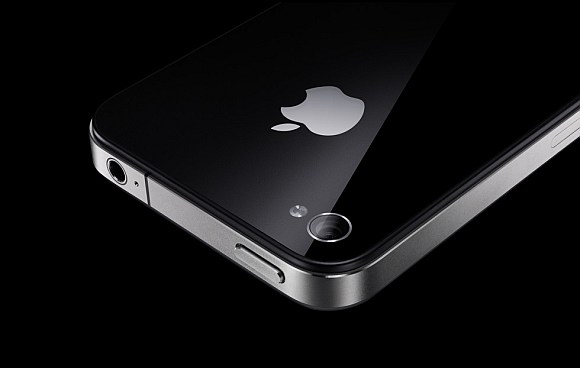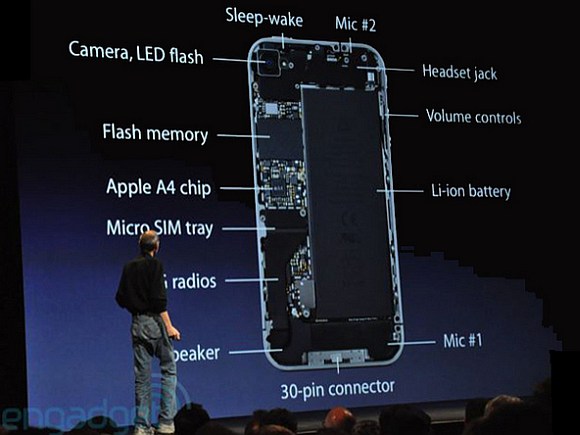
(Update 1157hrs 08062010) Maxis confirms that it will be launching the iPhone 4 “in coming months”. We’re predicting it could be as early as August.
It’s been a long wait but it’s well worth it. Fresh from the WWDC10 keynote, Steve Jobs finally announced the latest iPhone. Readers, here are the details of the iPhone 4.
The name
After months of speculation, it turns out most of us were dead wrong as to what the new iPhone will be called. Well maybe those who banked on the new iPhone to be called iPhone 4G can argue that they we’re very close to nailing it.
Now we all know that the new iPhone is not called the much expected iPhone HD nor is it the iPhone 4G, its simply called the iPhone 4. We like this name, its simple and elegant, rolls of the tongue nicely too. We can get use to saying iPhone 4 all day long.
The built and construction
From the keynote, we saw the iPhone 4 has excellent built quality and engineering. We’d go as far as saying that the iPhone could probably be the most advanced smartphone (soon to be) available to date.
It is, at the very least, a smartphone built like no other. Nothing in the market today and perhaps in the near future can come close to the level of engineering design on par with the iPhone 4.
First up, both the fron and rear panels of the iPhone 4 is made out of glass. Super tough aluminosilicate glass sanwiches the innards of the iPhone 4. These glass panels itself is extraordinary. The two glass panels making up the front and rear of the iPhone 4 is the same type of strengthened glass used in the windshields of helicopters and high-speed trains. Apple claims the glass is 20 times stiffer and 30 times harder than plastic, ultradurable and more scratch resistant than ever. It’s also recyclable.
We’re not sure how the new iPhone is going to stand up again drops and knocks but a full glass smartphone is indeed something very sophiticated. Definitely way ahead of the rest.
With a stainless steel band wrapping the two glass sheets, the iPhone 4 also promises to be one of the stiffest smartphones in the market. Apple claims that the alloy used in the stainless steel band is proprietary and is five times stronger that standard steel. The steel band makes the sleek and thin design of the iPhone 4 possible. So thin in fact that the iPhone 4 is 24% thinner than the 3GS. The steel band also functions as the iPhone 4 antennas.

The Display
Everyone’s pretty much expected that the display on the iPhone 4 is going to be special but no one could imagine how advanced the display is compared to other smartphones.
The iPhone 4 sports what Apple calls “Retina Display” with a 960 x 640 resolution LCD making up a pixel density of 326 pixels per inch and a contrast ration of 800:1. By comparison, the display on the iPhone 3GS is exactly half that of the iPhone 4 (480 x 320), this make the iPhone 4 the highest-resolution phone ever.
Apple did some research on displays and how our eyes perceived them. It discovered that the absolute pixel limit a human retina can discern is 300 pixels. The Retina Display shows 26 additional pixels per inch on screen making text and pictures appear sharper than ever before. To put it simply, the eye is not able to perceive a higher resolution display. Looking at an element on the Retina Display it would be almost impossible to make out the individual pixels.
Many who’ve had the chance to play with the device are saying the the display must be experienced in order to fully appreciate it. We haven’t seen the Retina Display ourselved but judging by the technology alone, it is safe to say that the display on the iPhone 4 is one of the best features of the device.

The Cameras
The iPhone 4 packs two cameras, one forward facing camera that enables you to make video calls (a service that Apple calls FaceTime video calling. More on this later); and the other is a 5MP main camera with built-in LED flash.
The 5MP main camera is nothing like we’ve seen on other handphones. Engineered to take better pictures, the main camera features a backlit sensor to allow for better low-light performance and a larger pixel sensor size to take full benefit of the increase in MP count. Most smartphone simple pack more pixel count but the size of the pixels itself are reduce to fit into the same size sensor. The 5MP camera on the iPhone 4 has a larger sensor that is able to accomodate lager pixels thus producing much better pictures.
In addition, the main camera records HD videos in 720p at 30fps. The iPhone 4 offers extensive video editing on the fly with iMovie, a paid app for the device. The iMovie app is intuitively simple to us but it is very powerful considering its running off a smartphone. Though, we’re a bit perplexed why the app is not offered for free.
The secondary forward facing camera is nothing special and functions like many secondary cameras allowing users to take self portraits and make video calls. Dubbed FaceTime video calling by Apple, this is the first time iPhone owners can make video calls. We’ve yet to see how the FaceTime video call workd so we can’t really comment on the execution but we find it odd that the iPhone 4 only allows video calls to be made over a WiFi connection.
Jobs mentioned in his keynote that Apple had to work out some kinks with the operators before they can offer the service via 3G. Another downer, is that you can only make FaceTime video calls with someone who has an iPhone 4 as well. Depending on how you look at it, this could be a good or bad thing but we’ll reserve our judgement until we’ve tried it out.

The inards
At the heart of the iPhone 4 is a A4 processor, the same one that’s running the iPad. With a 1Ghz clock speed, you can expect the iPhone 4 to be blazing. It’s worth noting that the silky smooth 3GS runs on a 800Mhz processor underclocked to 600Mhz, so you can expect very impressive speeds on the iPhone 4.
We revealed earlier that the display on the iPhone 4 is 33% thinner to accomodate a larger battery for a longer battery life. Specifically, the battery on the iPhone 4 delivers 40% improvements over its predecessor with up to 7 hours 3G talk time, 6 hours 3G surfing, 10 hours Wi-Fi, 10 hours video viewing and 300 hours standby time.
The boost in battery life is certainly a welcomed improvement.
Another welcome addition on the iPhone 4 is dual mic noise cancellation, a technology that made its debut on the Nexus One. We’ve had some use time with the Nexus One and can vouch for how awesome the technology works. Jobs didn’t go into any detail as to how the call quality on the iPhone 4 will be like with the dual mic setup, but we have an inkling it will be just as good if not better than what the Nexus One can muster.
A point to ponder is whether the dual mic will fuction for video and voice memo recording as well. The only way to find out is to try it out.
On top of the improved battery, the iPhone 4 adds another sensor to its array of ambient light and proximity sensors along with it’s built-in accelerometer – a three-axis gyroscope. The gyroscope will make for very accurate tracking of the device position in 3D space making the iPhone 4 one of the world’s most advanced portable game devices as well.
Pricing and Availability
We’ve predicted earlier that the iPhone 4 could be hitting Malaysian stores via, at the very least, Maxis as early as July. Well, we’re pretty close. As it turns out Singapore will be receive the second wave of iPhone 4 shipments in July and Malaysia could be slated in for August or September. Of course we’ll be rooting for the earlier date but we’ll be realistic.
Judging from past experiences we’re expecting an additional month’s delay as demand will definitely hit an all time high to the new iPhone. If you remember, the first international shipment for the iPad was delayed by a month, and even then there was no official announcement that it was heading to Malaysia.
So, expect the same thing happening with the iPhone 4.
In terms of pricing, Apple together with AT&T have managed to maintain simillar subsidised pricing for the iPhone 4, so we’re going to say that prices for the iPhone 4 in Malaysia will be very close to what the 3GS is going for now. Obviously, you can expect 3GS prices to drop as well.
Based on that, the iPhone 4 16GB should retail for around RM2500 and RM3000 for the 32GB (both unsubsidised). Of course it’s difficult to predict what the subsidised pricing will look like because uts based on plans, but we’re pretty sure it’s going to be close to what’s being offered right now.
Should you wait for one?
Based on the tech alone the iPhone 4 is well worth the wait. Nothing comes close to its level of sophitication and quality construction. Being as impartial as possible, it is very difficult for us to recommend anything else.
If you can afford it. This is the smartphone to get, period. So much so that we will be the first in line to purchase one when it is available in Malaysia.





